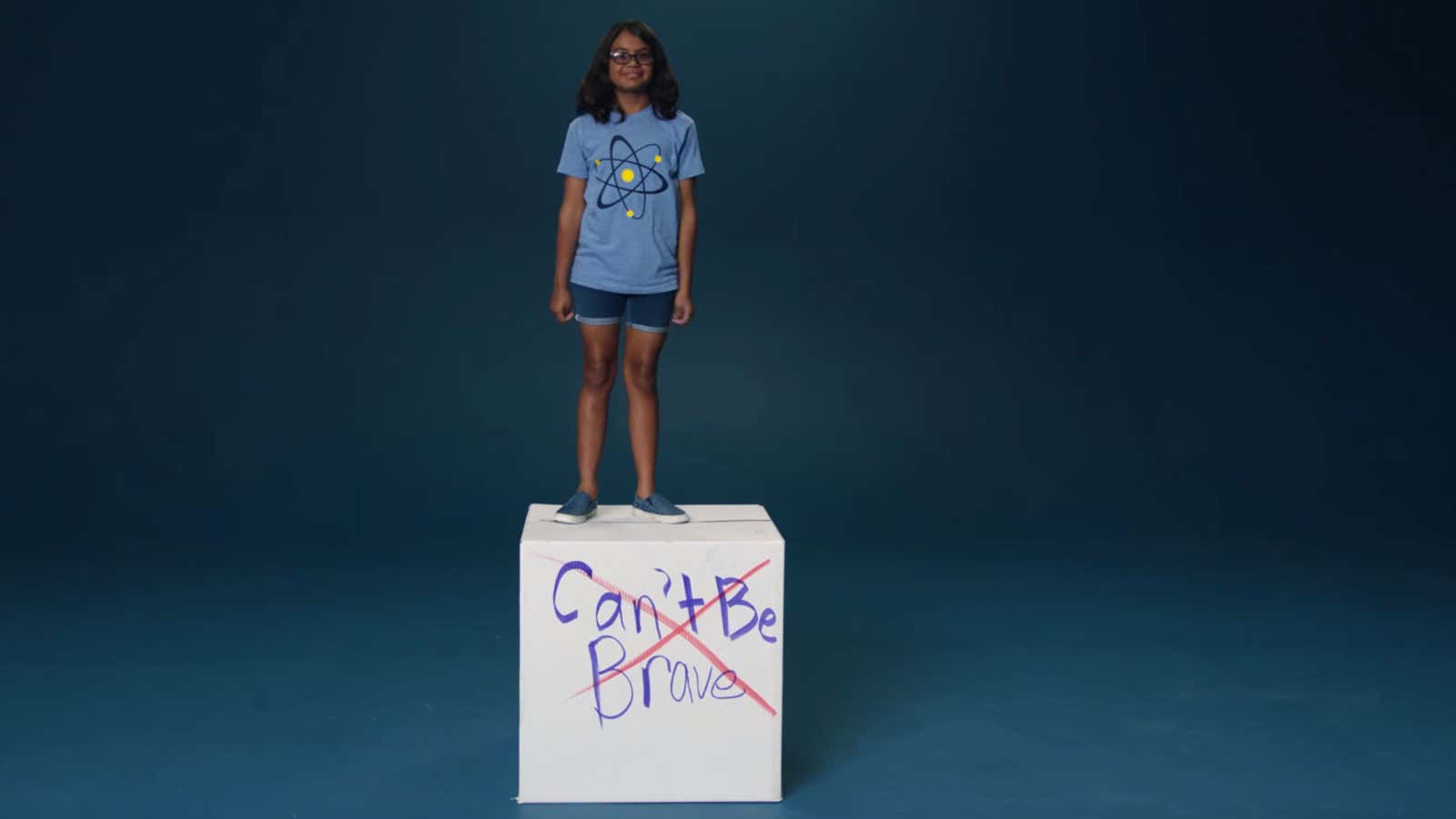A new ad from Procter & Gamble’s feminine hygiene brand Always asks girls, ”Have you ever been told because you’re a girl, that you should not do something?”
The answers, of course, are yes. One girl wants to be the hero instead of the one rescued. One thinks girls aren’t allowed to be sad. One says women are told not to challenge themselves.
Then those girls and women, and a bunch more, write those limitations on boxes, pile them up, and destroy the boxes. Some smash, some kick, one crosses out “can’t be brave” and stands on top of the box.
It’s symbolic, sure, and these societal expectations aren’t going to disappear because of an Always ad. But ads like this one, while promoting brand recognition and perhaps fostering brand loyalty in young women and mothers, can also be a good way to articulate double standards to the mainstream, even obvious ones, as a first step to changing them. (The #Likeagirl campaign, launched last year, cleaned up at the recent Cannes Lions International Festival of Creativity, the ad industry’s top awards.)
Along with the ad, Always announced that it is partnering with TED, which produces ideas-based speech conferences and videos, to create “confidence-inspiring content” for young women through TED’s education initiative.
This ad is arguably not as impactful as Always’ earlier #Likeagirl ad that aired during last year’s Super Bowl in the US. That highlighted the sexist undertones of a phrase that many people use without thinking twice, and the effect it can have on girls’ perceptions of themselves and their abilities.
The feminist advertising that seems to resonate most with audiences are the ones that point out a societal double standard that women all know to be true, and appreciate seeing deconstructed on screen. P&G, which owns both Always and the Pantene haircare brand, has become particularly good at this.
Take the Pantene ad that aired in the Philippines, revealing sexist double standards in the workplace.
There was also Pantene’s ”sorry not sorry” ad, which pointed out how women have been conditioned to apologize as a condition of politeness.
